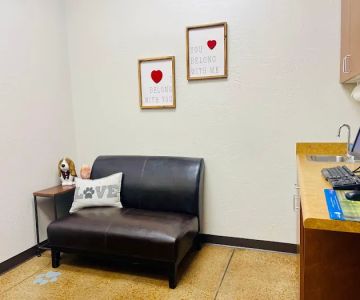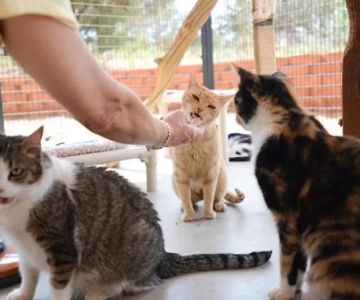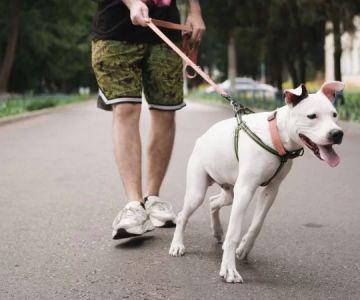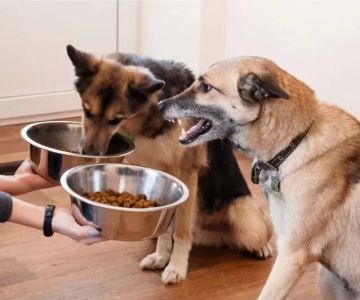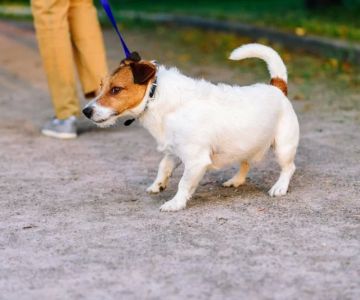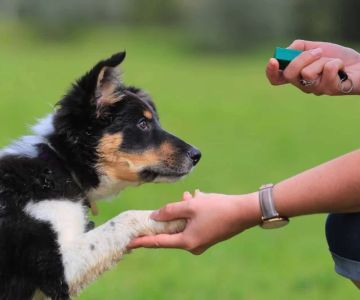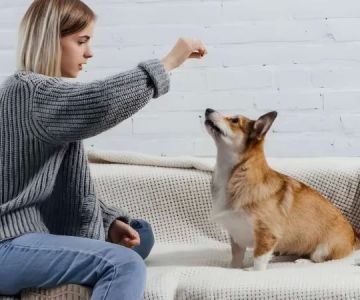How to Handle a Pet’s Jealousy
If you're a pet owner, you've probably noticed that sometimes your beloved furry friend can act a bit jealous, especially when you show attention to other pets or even people. As much as we love our pets, it's not always easy to deal with their jealousy, but I found that with a few strategies, you can maintain harmony at home. Let me share some of the methods that worked for me in handling my pet’s jealousy and helping them feel secure and loved.
1. Recognizing the Signs of Jealousy in Pets
Understanding jealousy in pets can be tricky because they can't exactly tell us how they feel. However, after observing my own pets, I learned to recognize certain signs of jealousy. These can include attention-seeking behaviors like whining, barking, or rubbing against you more than usual when another pet or person is nearby. I also noticed some aggressive behaviors such as growling, snapping, or even trying to push other pets away. It wasn’t always obvious, but with time, I began to spot the signs and knew when to step in.
1.1 Signs to Watch Out For
Pets may also exhibit other behaviors such as peeing indoors, knocking things over, or becoming overly possessive of a toy or space. These are all indicators that your pet may feel threatened by the attention another pet or person is receiving. My dog, for example, would sometimes guard me more fiercely when my cat started to snuggle next to me. These signs are often subtle, but once I started paying attention, they became easier to identify.
2. Why Pets Feel Jealous
The reasons why pets feel jealous are similar to those of humans—they want to feel loved, secure, and part of the family. In many cases, pets may feel like their relationship with their owner is being threatened by a new pet, a baby, or even just someone else getting more attention. From my experience, I noticed that jealousy can also arise if a pet is feeling neglected or if their routine is disrupted, which is common when we bring new pets or people into the home.
2.1 The Root of the Behavior
For example, when I adopted a second dog, I could tell that my first dog was feeling jealous not just because of the new pet, but because his position in the household had changed. The new dog was getting attention, and my first dog seemed unsure of where he stood. This shift can create stress and jealousy in pets, which is completely normal but still challenging to manage.
3. Strategies to Manage Pet Jealousy
After realizing that jealousy was becoming an issue in my home, I started implementing a few strategies to help my pets feel more comfortable and secure. Here’s what worked for me:
3.1 Give Equal Attention
One of the most important steps I took was ensuring that both of my dogs received equal attention. I made it a point to spend one-on-one time with each pet, whether it was taking them for a walk, playing with their favorite toy, or just cuddling. By making sure that neither of them felt left out, they both started to feel more secure. I also made sure not to give more attention to one pet when the other was around. This helped to eliminate competition and reduced their jealousy.
3.2 Reinforce Positive Behavior
I also started reinforcing positive behavior with rewards. When my pets were calm and shared space without showing jealousy, I would give them treats or extra affection. Positive reinforcement helped them learn that calm, peaceful behavior resulted in rewards, which gradually reduced their jealousy. It took time, but the progress was noticeable. I used treats, toys, and praise to encourage them to act calmly when they were around each other.
3.3 Create Separate Spaces
Another approach that helped was giving my pets their own spaces. At first, they both wanted to be around me constantly, and this caused tension. I realized that giving them their own “safe space” where they could retreat and relax when they needed to helped them feel more secure. This could be a designated bed, crate, or area of the house where they could go to unwind. It allowed them to have control over their environment and feel less stressed.
4. Dealing with Aggressive Behaviors
If your pet’s jealousy turns into more aggressive behavior, it’s essential to address the problem promptly. Aggression can include growling, snapping, or even attacking another pet. In these cases, I’ve found that it’s crucial to stay calm and assertive. I made sure to separate the pets if any aggressive behavior occurred and did not reward the behavior with attention. It’s important to be consistent in how you react so that your pet understands that aggressive behavior won’t result in positive outcomes.
4.1 Professional Training
If the aggressive behavior persists, seeking help from a professional trainer might be necessary. A professional can assess the situation and provide personalized strategies for dealing with jealousy and aggression. I’ve worked with trainers in the past who were instrumental in helping me manage complex behavior issues with my pets, and I highly recommend it if you’re struggling.
5. Maintaining a Balanced Environment
It’s also essential to create an environment where your pet feels safe and loved. This means providing them with structure, exercise, and plenty of mental stimulation. Jealousy often arises from insecurity, so maintaining a routine and ensuring your pet’s emotional needs are met can go a long way in reducing jealous behavior. I found that when my pets were well-exercised and mentally stimulated, they were much more relaxed and less likely to show jealousy.
5.1 Keep Routine and Structure
For example, maintaining a consistent feeding schedule and ensuring both dogs were fed at the same time helped eliminate some of the jealousy surrounding food. The same applied to playtime and training sessions. Creating a routine gave my pets a sense of security and predictability, which is key in reducing jealousy.
6. Seek Veterinary Help If Needed
Sometimes jealousy in pets can be a symptom of an underlying health issue, especially if your pet suddenly starts acting out. If you notice any drastic behavioral changes, it might be worth visiting a veterinarian to rule out any medical causes. I’ve found that when my pets weren’t feeling well, their behavior could become more erratic and anxious, which often contributed to jealousy. It’s always best to check with your vet if you’re unsure.

